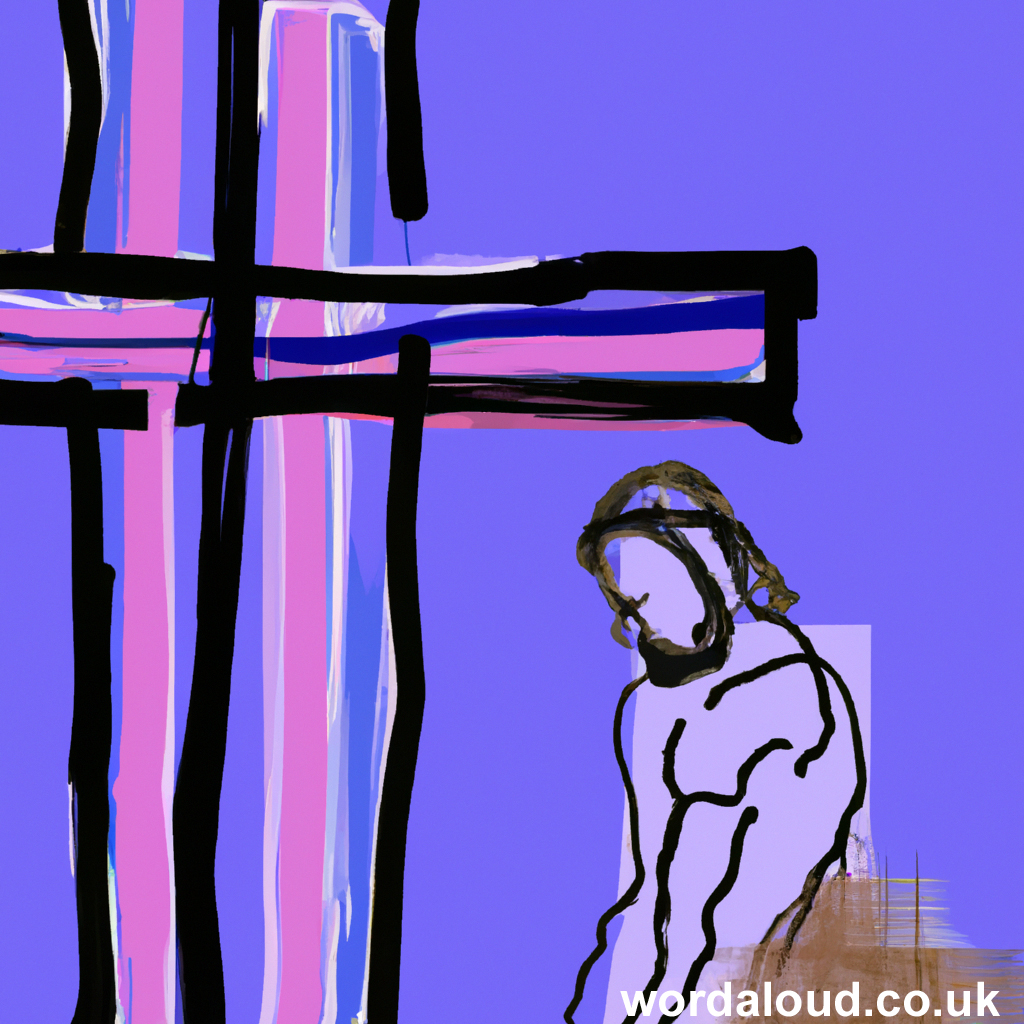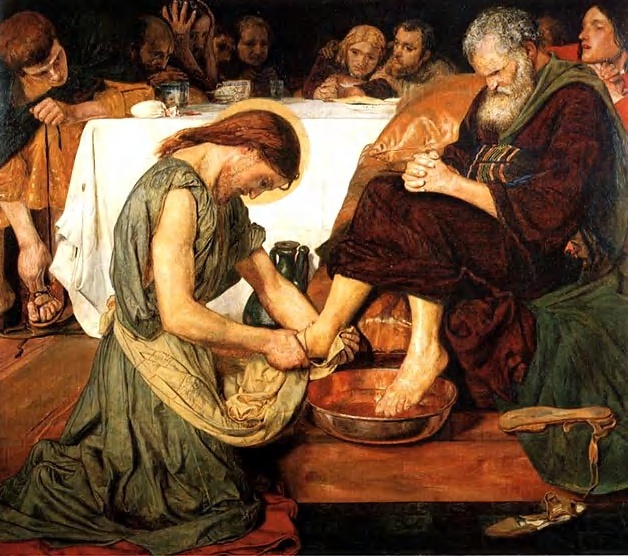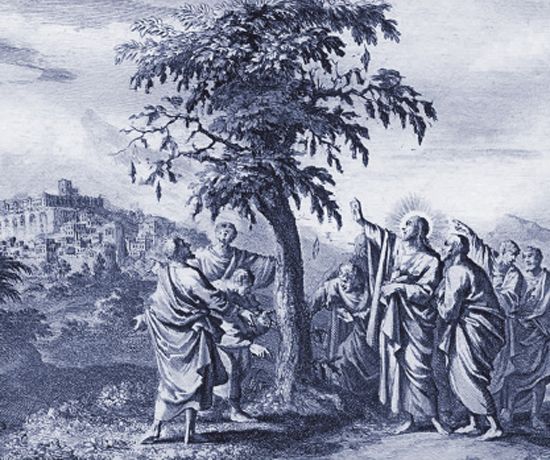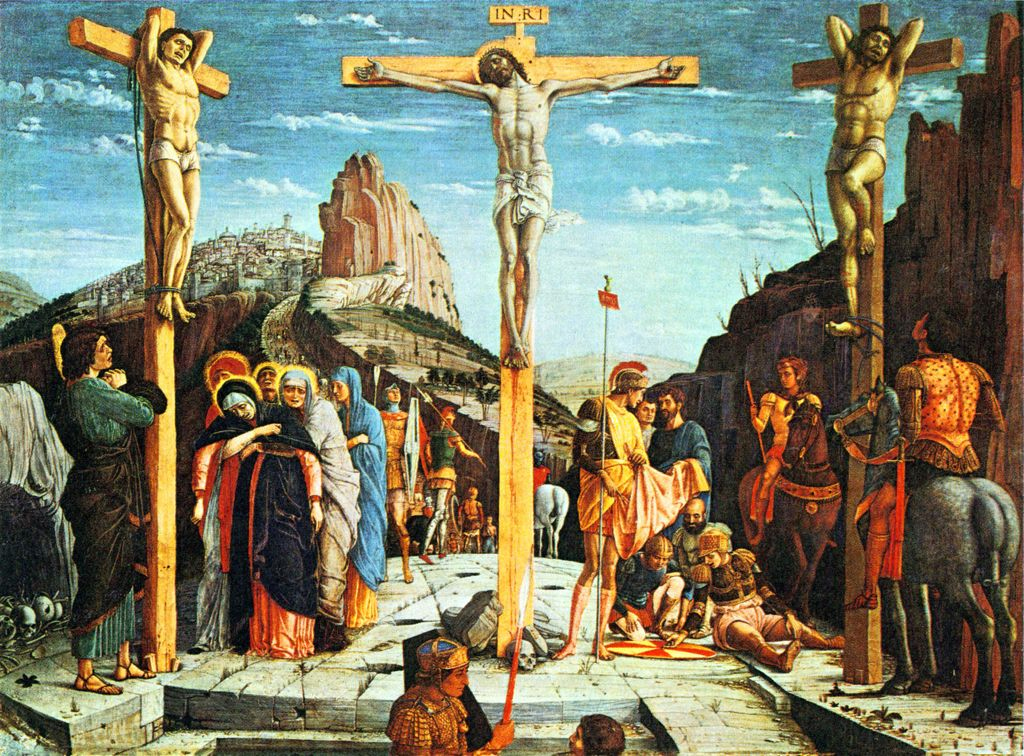Christian Art | Holy Week | Jesus Washes The Disciples’ Feet | The Last Supper
The Gospel Of Saint John – Chapter 13 | Audio Bible KJV | King James Version
1 NOW before the feast of the passover, when Jesus knew that his hour was come that he should depart out of this world unto the Father, having loved his own which were in the world, he loved them unto the end.
2 And supper being ended, the devil having now put into the heart of Judas Iscariot, Simon’s son, to betray him;
3 Jesus knowing that the Father had given all things into his hands, and that he was come from God, and went to God;
4 He riseth from supper, and laid aside his garments; and took a towel, and girded himself.
5 After that he poureth water into a bason, and began to wash the disciples’ feet, and to wipe them with the towel wherewith he was girded.
6 Then cometh he to Simon Peter: and Peter saith unto him, Lord, dost thou wash my feet?
7 Jesus answered and said unto him, What I do thou knowest not now; but thou shalt know hereafter.
8 Peter saith unto him, Thou shalt never wash my feet. Jesus answered him, If I wash thee not, thou hast no part with me.
9 Simon Peter saith unto him, Lord, not my feet only, but also my hands and my head.
10 Jesus saith to him, He that is washed needeth not save to wash his feet, but is clean every whit: and ye are clean, but not all.
11 For he knew who should betray him; therefore said he, Ye are not all clean.
12 So after he had washed their feet, and had taken his garments, and was set down again, he said unto them, Know ye what I have done to you?
13 Ye call me Master and Lord: and ye say well; for so I am.
14 If I then, your Lord and Master, have washed your feet; ye also ought to wash one another’s feet.
15 For I have given you an example, that ye should do as I have done to you.
John speaks of the Last Supper in a different way from the Synoptic Gospels. He omits, for example, the institution of the Eucharist, because the other Gospels and Paul have already spoken of this in their accounts of the Last Supper. Through chapters thirteen to seventeen, John gives an extensive account of Jesus’ teaching at the Last Supper, in which Jesus builds on his teachings so far and leads his disciples to a greater understanding of the love that they must share and of the way ahead.
The Feast of the Passover was the principle Jewish celebration of the year, recalling the time of the Book of Exodus, of their liberation by God from the captivity of Egypt, and the passing over of the angel of God while the firstborn of the Egyptians were killed. A lamb was sacrificed on the eve of the Passover, to be eaten at the Passover meal. In Exodus, the blood of the lamb was used to mark the doorways of the Jewish people, so that the angel of God would pass them by.
Through his love for us, Jesus has freely become that lamb, the Lamb of God who takes away the sins of the world. The prophecies are fulfilled. In these verses of the Bible, by washing the disciples’ feet, Jesus expresses his love for them and us. He also teaches the disciples an important truth, that Jesus came to serve as the disciples must serve, one another, as a brotherhood, as well as the whole world. Indeed, their calling to Christ will entail such service as will be very difficult to bear. They will endure persecution and, for most, martyrdom. It is well that Jesus prepares them so thoroughly and honestly for the trials ahead.
Jesus teaches the disciples by example as well as by words. The washing of feet is a sign of the purification that Christ brings to the disciples as to Christians through all ages, through his teaching and through our washing in his precious blood which was spilt on the cross. It is a sign of our Passover.
John provides a very detailed account of Jesus’ actions as he tells us: ‘He riseth from supper, and laid aside his garments; and took a towel, and girded himself.’ We are given a vivid picture in this verse of Jesus showing the disciples that he has made himself a servant, by wearing a servant’s apron. The words used also echo a baptismal rite of initiation, through which the catechumen would be born again. (Cf. the unnamed young man who flees from the Garden of Gethsemane.) This must have been very strange to the disciples, who preserve a sense of hierarchy rather than of mutual equality and brotherhood. They must feel that the Messiah is demeaning himself. This must have created a lasting impression for the disciples.
Jesus sees that his disciples do not understand. He reassures them, telling them that this is okay and also that they will come to understand. Simon Peter is very confused, at first refusing to be served by Jesus and then asking to be physically cleansed all over. It is now that Jesus tells the disciples that they are clean, because they have believed him and followed him. They are to be bathed in the blood of the Lamb. They have been purified by Jesus. The old Jewish observances of purification rituals are completed and, to the Christian, rendered obsolete. They are clean within their souls.
St John Chrysostom writes: ‘You are already clean because of the word that I have spoken to you. That is: You are clean only to that extent. You have already received the Light; you have already got rid of the Jewish error. The Prophet asserted: “Wash yourselves; make yourselves clean; remove the evil from your souls’ (Isaiah 1:16)… Therefore, since they had rooted out all evil from their souls and were following him with complete sincerity, he declared, in accordance with the Prophet’s words: “He who has bathed is clean all over.”’
We are called through these verses of John’s Gospel to be washed in the blood of Christ, to purify ourselves through close attention to all Christ’s teachings, and to serve one another as Christ serves us.
‘He is the Passover of our salvation… He is the silent lamb, the slain lamb, who was born of Mary the fair ewe. He was seized from the flock and dragged away to slaughter. Towards evening he was sacrificed, and at night he was buried. But he who had no bone broken upon the cross, was not corrupted in the earth, for he rose from the dead and raised up man from the depths of the grave.’ Melito of Sardis

![]()
![]()
Audio Bible KJV | King James Audio Bible | Endnotes
Why Did Judas Iscariot Betray Jesus?
The betrayal of Judas Iscariot is a haunting and perplexing event in the Christian narrative. In John 13:2, it is written: ‘And supper being ended, the devil having now put into the heart of Judas Iscariot, Simon’s son, to betray him.’ Later in the same chapter, Jesus predicts his betrayal, saying: ‘Verily, verily, I say unto you, that one of you shall betray me.’ (John 13:21)
The question of why Judas betrayed Jesus has puzzled scholars and religious authorities for centuries. Some have attributed his actions to greed, as Judas is said to have accepted thirty pieces of silver in exchange for his betrayal (Matthew 26:15). Others have suggested that Judas was disillusioned with Jesus’ message and his failure to overthrow Roman rule in Israel. Still others have argued that Judas acted out of a misguided sense of loyalty to Jesus, believing that by turning him over to the authorities, he would force Jesus to reveal his true power and establish his earthly kingdom.
One interpretation of Judas’ betrayal comes from the early Church Father, St. Augustine. In his work, ‘On the Gospel of John’, Augustine suggests that Judas’ betrayal was the result of his lack of faith in Jesus. Augustine argues that Judas, like many others, followed Jesus hoping for a political savior who would overthrow Roman rule. When Jesus failed to meet these expectations, Judas became disillusioned and turned on him. Augustine writes: ‘For Judas had not this faith, which worketh by love; and therefore he thought Christ’s power was of such a nature that He could not possibly be taken captive, or that if He were, He would easily escape, and not suffer anything at the hands of His enemies.’
Another perspective comes from the Protestant theologian, John Calvin. In his ‘Institutes of the Christian Religion’, Calvin suggests that Judas’ betrayal was part of God’s plan for Jesus’ crucifixion and resurrection. Calvin writes: ‘The chief reason why God permitted Judas to fall into this terrible crime was to show more clearly how wonderful His goodness is, that He could bring good out of evil.’ According to Calvin, Judas’ betrayal was necessary for the fulfillment of scripture and the redemption of humanity.
In recent years, some scholars have proposed a psychological explanation for Judas’ actions. In her book, The Gnostic Gospels, Elaine Pagels argues that Judas may have suffered from what is now known as borderline personality disorder. Pagels suggests that Judas’ erratic behavior and intense emotional instability may have led him to betray Jesus as a way of gaining control over his own life.
A further perspective on the betrayal of Judas comes from the Catholic theologian, Thomas Aquinas. In his Summa Theologica, Aquinas suggests that Judas’ actions were motivated by a desire for personal gain, but that he was also influenced by the devil. Aquinas writes: ‘The cause of Judas’ sin was his love of money, and this was inflamed by the devil, who entered into him.’ According to Aquinas, Judas’ greed and susceptibility to demonic influence led him to betray Jesus.
Saint Thomas More, 16th-century English saint and martyr, also wrote about Judas’ betrayal. In his ‘Treatise on the Passion’, More suggests that Judas was motivated by a desire for power and recognition. More writes: ‘For as Ambition and Covetousnesse were the fountaines of all his sinne, so was it Pride that made them spring.’ More argues that Judas’ pride led him to believe that he could control the situation and manipulate Jesus for his own purposes.
In the present day, some scholars see it as a symbol of the human capacity for sin and betrayal, while others view it as a necessary component of Jesus’ mission and the salvation of humanity. Some have even suggested that Judas may have acted out of a sense of loyalty to Jesus, believing that his actions would force Jesus to reveal his true power and overthrow Roman rule.
Others have said and written:
- ‘Judas was, in some ways, the greatest of the apostles. He was the one who was trusted with the money, and he was the one who was closest to Jesus. But he was also the one who betrayed him. And that is what makes his story so tragic.’ – N.T. Wright, New Testament scholar
- ‘Judas’ betrayal was an act of calculated treachery, not a misguided attempt to further Jesus’ cause. It was a selfish and evil act, and it remains a warning to all who would put their own interests above those of others.’ – Billy Graham, Evangelical preacher
- ‘Judas’ betrayal was the ultimate act of unfaithfulness, not only to Jesus but to the entire community of believers. It was a betrayal of trust and a violation of the covenant that bound the disciples together.’ – Elizabeth Johnson, Catholic theologian
- ‘Judas’ betrayal was not simply a matter of his own personal failings but was part of a larger pattern of human sin and brokenness. It reminds us that we are all capable of betraying those we love and that we must constantly guard against the forces that would lead us astray.’ – Rowan Williams, former Archbishop of Canterbury
- ‘Judas’ betrayal was a necessary part of the story of salvation, but it was also a tragedy that should not be minimized or overlooked. We must remember that Judas was a human being with his own fears, hopes, and dreams, and that his actions had real consequences for himself and for those around him.’ – James Martin, Jesuit priest and author

![]()







